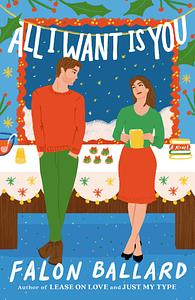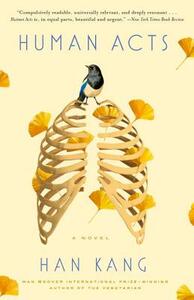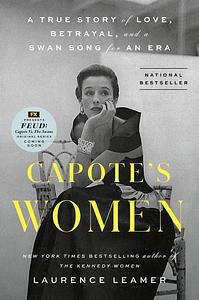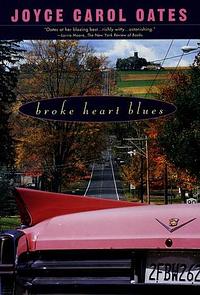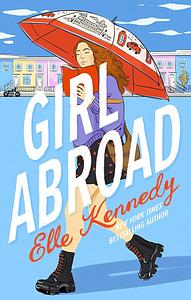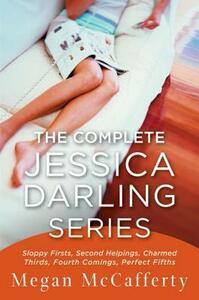Take a photo of a barcode or cover
documentno_is's Reviews (1.28k)
emotional
lighthearted
fast-paced
Plot or Character Driven:
Character
Strong character development:
Yes
Loveable characters:
No
Diverse cast of characters:
No
Flaws of characters a main focus:
Yes
I can't in good conscience say this is worth reading, even as a palate cleanser.
adventurous
emotional
inspiring
lighthearted
reflective
fast-paced
Plot or Character Driven:
A mix
Strong character development:
Yes
Loveable characters:
Yes
Diverse cast of characters:
Yes
Flaws of characters a main focus:
Yes
Needed a palette cleanser after a particularly difficult book and this worked magic for that. Biking seems cool. The author taking kind of a neutral stance to cheating was interesting
challenging
dark
emotional
informative
sad
medium-paced
Plot or Character Driven:
Character
Strong character development:
No
Loveable characters:
Yes
Diverse cast of characters:
No
Flaws of characters a main focus:
No
Probably one of the saddest books I’ve endeavored to read. Choosing to narrate through multiple characters that each have their own personal connection to a tragedy was very effective at eliciting a strong emotional response. I was not super familiar with the gwanju uprising previously so it was valuable to experience this historical moment in this way, especially knowing how much certain parties in South Korea try to repress this history.
Pretty hard to get through and not certain how much I got from it- he often seems to contradict himself in intention.
He supposes Christ as this romantic areligious figure that he isn't, if anything this is probably blasphemous- I don't really care and I do like when he waxes on Christ's thoughts on the the rich leading the path to hell but he starts to lose me in some of his artistic opinions
I prefer the parts when he writes to his personal experience of the betrayal of a vain lover, the terrible conditions of prison, and the trial that landed him there; there is a bittersweet sadness to the coming to terms with his hedonism and fame landing him in prison but not being perhaps able to divorce that from his sexuality is...complex to say the least. The supposed questioning of his former lifestyle is understandable when he has been committed for it but I do enjoy that he focuses on society's illness and their own hypocrisies as evident in landing him there as well.
Overall my opinion of this letter was rather neutral, it was written in a complex situation so I can forgive him a bit for rambling and over-repeating certain points while not elaborating on others but it does ultimately result in something not so fluid to read.
I prefer the parts when he writes to his personal experience of the betrayal of a vain lover, the terrible conditions of prison, and the trial that landed him there; there is a bittersweet sadness to the coming to terms with his hedonism and fame landing him in prison but not being perhaps able to divorce that from his sexuality is...complex to say the least. The supposed questioning of his former lifestyle is understandable when he has been committed for it but I do enjoy that he focuses on society's illness and their own hypocrisies as evident in landing him there as well.
Overall my opinion of this letter was rather neutral, it was written in a complex situation so I can forgive him a bit for rambling and over-repeating certain points while not elaborating on others but it does ultimately result in something not so fluid to read.
Capote's Women: A True Story of Love, Betrayal, and a Swan Song for an Era
DID NOT FINISH: 3%
This was more boring than I expected
emotional
reflective
sad
medium-paced
Plot or Character Driven:
Character
Strong character development:
Yes
Loveable characters:
Complicated
Diverse cast of characters:
No
Flaws of characters a main focus:
Yes
This one had a really slow and grueling start but ultimately ended in a nice place (although I think the ending was a bit too abrupt.) I wasn't super drawn into these characters unfortunately.
Couldn't garner any specific theme other than life sucks and then you die from the prose alone. Mun seemed interested in little but showing us the cruelty of existence, and I think thats fine in terms of working through her personal demons but in terms of writing for an audience I'd like to be able to take something away from all this tragedy. Maybe if the book was more beautifully written I could've been more invested but it was pretty bare and lacked interest.
adventurous
challenging
emotional
funny
mysterious
slow-paced
Plot or Character Driven:
Character
Strong character development:
No
Loveable characters:
Yes
Diverse cast of characters:
No
Flaws of characters a main focus:
Complicated
Broken Heart Blues is the first Oates novel I've read in adulthood, and I found it to be a sometimes lovely sometimes grueling look at affluent suburban Buffalo life. I appreciated her afterword, giving material context for the lives of interwoven stories featured here in her novel. If I had written myself I'd likely have been more critical of the structures of wealth and affluent childhoods of the cast- but as such I'm glad we're allowed the foil of John Reddy Heart. He, like to the cast, was my favorite character in the novel.
In terms of structure you have a rather large cast of characters that are all told in alteration in an almost sing-song like third person, interspersed with pieces of song and almost narratorial quirks of call and response. These parts are hard to follow but by the end you learn to accept the confusion and go along for the ride of all the alternating perspectives- it enhances the sort of manic energy quality of the prose I believe. The character alternations reminded me a little of The Waves. The subject of the novel, John Reddy Heart, is rarely in perspective and you’re really surrounding his mythos so you’re never quite sure what’s true or isn’t (he addresses some of these events in his chapter but leaves out moments you think he would focus on if they were true- the car accident, the orgy, etc. ?) I think as much as I liked the style and the quality of the writing the book was a little too ambitious about the amount of narratives and the amount of arcs it was going to have- it was overly long.
Broke hart blues is at its most interesting when it talks about the burgeoning development of a political consciousness of a generation. The part in the final chapter that goes on about the changes to Buffalo and surrounding townships- the change in economic situation and the way its changed their lives. The way that people who were one thing in adolescence can escape their situation but still be held down by its memories- these were my favorite parts. Hearing finally from John Reddy in adulthood was gratifying, shaping his trauma out of his mythos from everyone’s memories of him. The way he was so different and so much more insecure than the sure person they made him seem. The way he was trapped in his own way in the trauma of what happened to him and the relationship with his mother.
adventurous
lighthearted
reflective
fast-paced
Plot or Character Driven:
Character
Strong character development:
Yes
Loveable characters:
Yes
Diverse cast of characters:
Yes
Flaws of characters a main focus:
No
The historical mystery subplot felt like such a strange out of element piece of a rather generic ensemble drama / I think with better aesthetics this book could have been a little more interesting but we didn’t get enough London, the music wasn’t music enough, the protagonist was boring- although I did love the sort of laissez faire attitude she had towards dating this entire project felt… detached
adventurous
funny
lighthearted
fast-paced
Plot or Character Driven:
Character
Strong character development:
Complicated
Loveable characters:
No
Diverse cast of characters:
Complicated
Flaws of characters a main focus:
Yes
Sometimes it’s best to leave things in the past, a review of The Complete Jessica Darling series.
Somehow in my 13 year old pre-political mind Megan McCafferty was able to say the most racist, inane, and offensive things all the while masquerading as a progressive and appealing to the depressed desperation of my preteen years.
The Jessica Darling series gave voice to the typical millennial experience. The post 9/11 anxiety and unemployability millennials faced in the Bush era very closely mirrors the woes of our current administration. I think often of this novel series when I hear the phrase “how did we get here?” Quite simply, we were never really that progressive and popular society wants a return to form rather than a push forward. It’s so strange to read McCafferty bring focus to a burgeoning queer consciousness and in the same novel casually diminish the validity of same sex relationships and casually espouse Islamophobic slurs. It strangely invalidates the very real, tangible anxieties about moving to a city that was the victim of a terrorist attack.
The parts of this series that felt most earnest and raw were Jessica’s inability to find kinship amongst her peers and observant eye, all the while admitting she was somebody that ultimately often succumbed to peer pressure and didn’t have a very accurate perception of her social standing in high school. The reader has some sense of this as she inwardly mock’s Len’s speech difference, makes value judgments on people based on their style and outward appearance, and ultimately has trouble relating to people who had genuine difficulties after she goes to college. McCafferty attempts to speak about wealth and class in regard to how it affects their (admittedly very caucasian community) but then diminishes minor characters as token characters in almost ironic parallel. I found it troubling when McCafferty’s protagonist felt relief when a minor character relinquished her “ebonics” for a typical academic English. I can see that McCafferty’s attempt was to bring truth to the fact that this minor character had a privileged upbringing and her speech was a performance to uphold an inaccurate portrayal of herself.
McCafferty can’t accurately engage in this topic because her own white privilege feels comfortable using “ghetto” to diminish a specific brand of rice and beans and felt comfortable siphoning this same minor character into a “round-the-way-girl” stereotype. In closer examination a reader ought notice that black characters only exist in McCafferty’s novelizations as stereotypes, caricatures of “urban cool” that McCafferty can use to bring out Jessica’s suburban awkwardness or make her appear not explicitly racist as her mother degrades neighborhoods in New York. In this was Jessica Darling’s character espouses many tone deaf liberals who can easily look across the political spectrum to find similarities amongst differences as she has sex with a republican because as Darling admits- her rights are never on the chopping block and her progressive values are as fake and transparent as her distaste for her high school friends.
The parts of this series that felt most earnest and raw were Jessica’s inability to find kinship amongst her peers and observant eye, all the while admitting she was somebody that ultimately often succumbed to peer pressure and didn’t have a very accurate perception of her social standing in high school. The reader has some sense of this as she inwardly mock’s Len’s speech difference, makes value judgments on people based on their style and outward appearance, and ultimately has trouble relating to people who had genuine difficulties after she goes to college. McCafferty attempts to speak about wealth and class in regard to how it affects their (admittedly very caucasian community) but then diminishes minor characters as token characters in almost ironic parallel. I found it troubling when McCafferty’s protagonist felt relief when a minor character relinquished her “ebonics” for a typical academic English. I can see that McCafferty’s attempt was to bring truth to the fact that this minor character had a privileged upbringing and her speech was a performance to uphold an inaccurate portrayal of herself.
McCafferty can’t accurately engage in this topic because her own white privilege feels comfortable using “ghetto” to diminish a specific brand of rice and beans and felt comfortable siphoning this same minor character into a “round-the-way-girl” stereotype. In closer examination a reader ought notice that black characters only exist in McCafferty’s novelizations as stereotypes, caricatures of “urban cool” that McCafferty can use to bring out Jessica’s suburban awkwardness or make her appear not explicitly racist as her mother degrades neighborhoods in New York. In this was Jessica Darling’s character espouses many tone deaf liberals who can easily look across the political spectrum to find similarities amongst differences as she has sex with a republican because as Darling admits- her rights are never on the chopping block and her progressive values are as fake and transparent as her distaste for her high school friends.
These books were written in a different time, and I think the prose and speech McCafferty uses very accurately espouses the language and short-comings of that time. The constant use of the ‘r’ word and casual homophobia are useful example of this. This book reminds me of a time well before the me-too movement when every pro-woman thought had to be predicated with “and you know I’m not a feminist.” This is only further espoused by the time the reader arrives at the 4th book where Manda’s sexual actualization only exists as comedic fodder for Jessica and her friends (as a reader I can’t help but feel a happy twinge that in the finale Manda has stopped being her friend.) Jessica has never respected outsider viewpoints or any challenges to her smartest/funniest in the room shtick that while endearing in her high school days becomes quickly grating as it carries over into adulthood. Interesting to examine as an anthropological adventure, but best left in the past.
Now that I’ve completed the series again in adulthood my final conclusions are as follows; I really think this series could have been a two part series chronicling their (Marcus & Jessica’s ) messy high school relationship and leaving a semi-open ended finale. I understand McCafferty’s cash grab and while I do agree she allowed the characters to grow in realistic ways I’m just not sure I should have been privy to that as a reader. The narrative voice that I found so compelling in high school became grating in adulthood- like a less insightful girls rip-off with worse politics and less self awareness. I mean, can this woman write a non-white character as anything but a racist caricature (even in the relatively tame final novel when she names a Korean character Sunny Dae- in the same paragraph where she admonishes Marcus for his incorrectly labeled Chinese arm tat?) Resoundingly, no. So I think unless you have some particular nostalgia for this series there are certainly better narratives doing the same with a lot less rough edges. That said, I know a lot of people criticize the final book for the change in style but I think it was honestly a satisfying conclusion, if not a far better book than the third and fourth iterations. It’s the least problematic, actually has any sense of continuity and call back, is true to who the characters were and become and I think its quite good. I’m glad I got to reread this series if only for the last piece ( and I do really wish I could forget that fourth book.)
It’s clear why this series appeals to teenagers- Jessica’s narcism often echoes the developmental selfishness of teenagers. Teenagers are messy, rough around the edges, and problematic- as Jessica reconvenes with in the final book to satisfying conclusion. While I can see how she helped many grow into adulthood- the stale references, blatant racism, and overall lack of empathy from Jessica make her a very unbearable protagonist as I begin to question even the author’s voice and what she thinks constitutes as funny. I’m sure these days she would decry me as the woke mob or something to this effect, but I’m just an old fan turned reluctant critic in the modern era. So, I’ll document my hater-isms in a way at least the fictional Jessica might appreciate.
